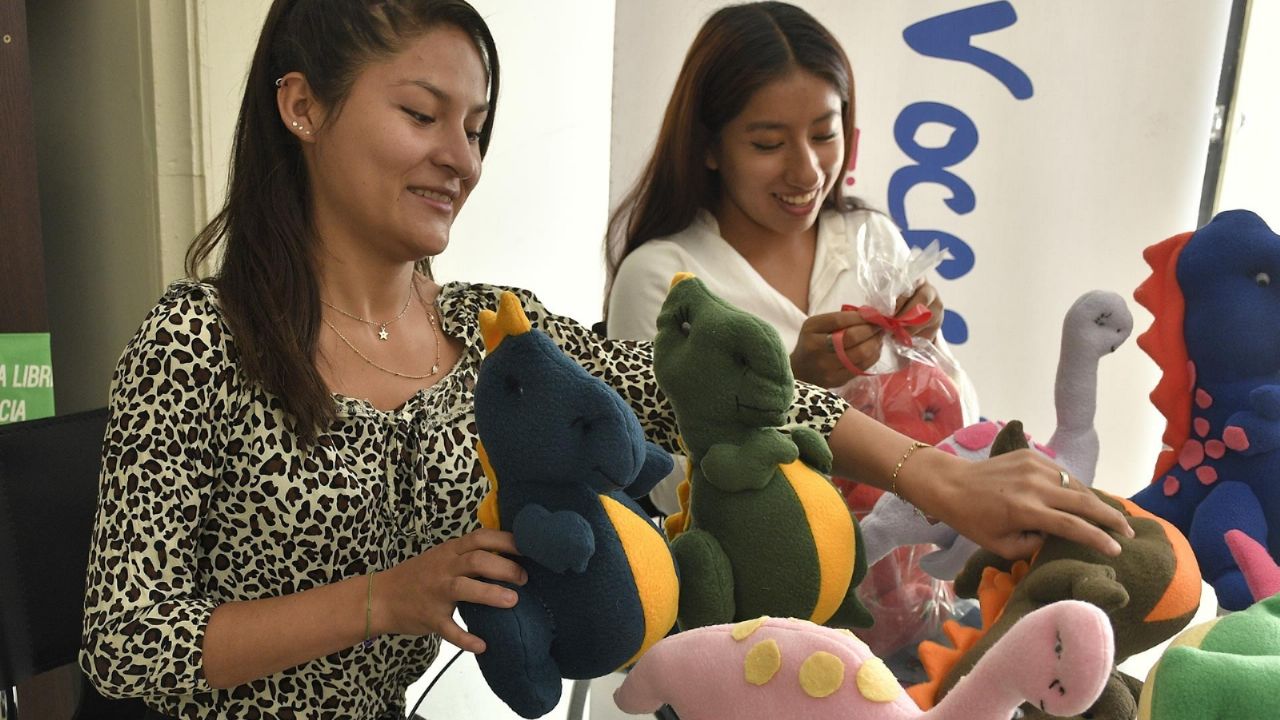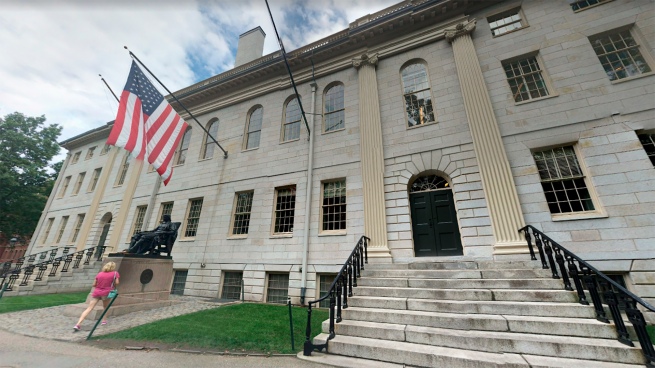Gina Baldivieso (EFE) / Cochabamba
Being a lawyer, social worker or psychologist is the goal of some thirty Bolivian women who have suffered from sexist violence or its consequences and who are now studying to have the legal and technical tools to combat impunity in these crimes.
Most are survivors of some type of violence, others are daughters or sisters of victims of femicide, but there are also girls who migrated from rural areas to the city and even a couple of boys who grew up in foster homes, all with the common denominator of wanting a change in Justice.
They are beneficiaries of the Justicieras Project, of the Free Voices Foundation, based in the central city of Cochabamba, which seeks to share its extensive experience in defending victims of violence with “allies” committed to that cause, he explained to Efe the legal representative of that institution, Mercedes Cortez.
With a history of almost 15 years in the fight against violence against women and children, the foundation has seen in all that time an “absence” of lawyers specialized in the subject and who are committed to achieving justice for the victims, he commented.
Cortez recalled that the approach to justice with a gender perspective is “relatively new” in the country, since Law 348 against sexist violence will be ten years old in 2022 “and there are still many people who are unaware of it.”
You can also read: Rosi’s mother: “Please help me find her”
The jurist saw the need to transmit the tools and strategies that she discovered in that journey and that is how the foundation issued a call to “search for women who have that conviction to fight” against violence and impunity.
the justices
In addition to victims of violence, the call targeted girls who grew up in foster homes as a result of violence or abandonment and migrants from rural areas.
The applicants, who were more than a hundred, had to send a letter explaining their motivations to be part of the project, which finally ended with 36 beneficiaries, mostly between 19 and 23 years old, although there are also four adult women and two men “committed ” with the cause, Cortez said.
The Justicieras study Law, Social Work and Psychology at the state university of Cochabamba and each one receives a monthly aid equivalent to about 72 dollars from Voces Libres to pay for their student expenses.
That money is financed thanks to foreign sponsors who support the foundation through the efforts of “mamita Marianne”, the Swiss Marianne Rebeaud, founder of Free Voices.
You can also read: Former students also denounce the abusive teacher of El Alto
The foundation’s House of Justice is the home of the Justicieras who have nowhere to live, since there they have spaces to sleep and cook, basic services and non-perishable food provided by Free Voices and the fresh food is paid for by them.
Apart from their university studies, they are also trained by the foundation’s professionals so that they can learn from victim assistance spaces, such as the Prosecutor’s Office, the police unit against violence or the Justice Observatory itself, the legal service of Voces Free, Cortez explained.
“What we want is that when they come out (professionals), it is with a very marked gender perspective, with strategies, skills and tools to defend women,” said the jurist.
The “biggest dream” is that they come to occupy positions of power, “that one day they will be prosecutors or judges and that we change the Justice,” he added.
The motivations
Cortez pointed out that since Law 348 came into force there have been more than 600 femicides in the country, where every three days a woman dies as a victim of sexist violence.
He also mentioned that seven out of ten victims “will never break their silence because the justice system is collapsed and the victims do not have advice or support.”
According to Cortez, the project seeks to “reduce that 99% of impunity that exists in the country”, since many victims end up reconciling with their aggressors or abandoning the process for various reasons such as delays in judicial processes, something that Ana criticizes María Rocha, one of the young Justices.
You can also read: Sopapos and palazos, the questioned tradition of the Pichincha school
“It takes too long to put an aggressor in jail, several escape and there is a lot of injustice. Many do not pay for the crimes they commit and continue to repeat them on other women,” said Rocha.
The young woman grew up in the Lluvia de Ángeles home of the foundation and is now in her second semester of Social Work with the motivation of “helping people”.
Daniela Ponce, another Justice who was a victim of sexual violence, lamented that the sentences take years, which “is not fair for the family” of the murdered women, nor for the survivors.
Ponce studies Law and aspires to be a prosecutor, but a prosecutor who protects and listens to the victims, something that in his opinion is not currently happening.
Something that the Justicieras and the foundation itself have in mind is that the projects be self-sustaining and the young women have economic autonomy, for which those who live in the House of Justice have devised some initiatives.
One of them is the Dinoamigos, cute cloth dinosaurs that the young women made and put on sale for Bolivian Children’s Day.


















